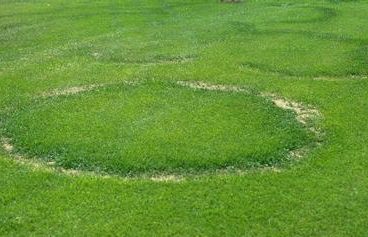Lawn & Garden

A lot of time and money is spent on athletic turf every year. Depending on the budget, there are different levels of management that field managers practice. Below are some guidelines for properly managing turf grass
Mowing Turf Grass
Mowing is the one practice that everyone is going to do, but you must pay attention to your mowing heights. Bermuda grass is the popular turf for athletic fields because of its ability to grow fast. A hybrid Bermuda grass may be mowed between 3/4 to 1 inch and common Bermuda grass is higher. A good general rule is not to remove more than 1/3 of the height of the grass when mowing.
Depending on the fertility and irrigation practices, mowing twice a week is commonly practiced. If mowing is done often, you don’t have to worry about collecting clippings. For a better look, keep the blades sharp and slow the mower down. As turf gets stressed and growth slows during the late summer, you might try raising the mowing height a little.
Soil Testing
Soil testing is the best way to know what kind of fertilizer to apply. When you think about the many inputs that it takes for a good looking turf, the $7 soil test is cheap. See the Extension content piece Submitting Samples for Soil Testing for more information. If you have questions once you get the report back from the lab, you can contact your Alabama Extension regional agent to discuss the result of the test.
Water Management
Athletic turf needs approximately 1 to 1 1/2 inches of water per week during the growing season. Put up a rain gage and keep up with how much rainfall the field gets per week. When irrigation is needed, it is better to apply all the water once or maybe twice a week, depending on how the field drains, instead of applying a little water daily. Put rain gauges in several areas of the field to check the coverage area of the sprinklers and adjust spray heads if needed.
It is also best to irrigate in the morning rather than late in the day or at night. You want the field to dry off and not encourage disease problems. Wet soil compacts easily. You cannot control the rain, but you can manage irrigation. If irrigation is needed, it may be best to irrigate no less than 24 hours before a game. A couple of days before a game may even be better.
Compaction in Turf
Allowing a field to rest is good for it, especially when the ground is wet. Remember, wet soil compacts. It would also be nice to have one or more practice fields, but that is not always possible. If a practice field or fields are available, keep those areas in as best shape as possible. This includes the same management practices as the playing field such as good fertilization, weed control, fire ant management, etc. If a field is compacted, which is common, you may need to think about aeration. It is a good general rule to aerate twice a year but heavy compacted soils may need it more often.

